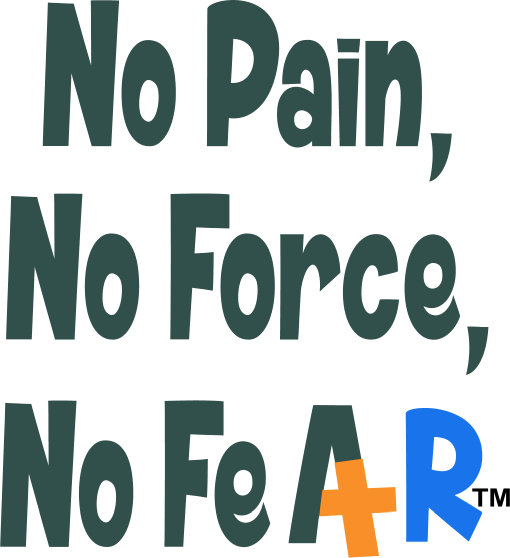Barks Blog
PPG Publishes Open Letter to Veterinarians on Referrals to Training and Behavior Professionals
Expresses concern that, in an unregulated industry, pet owners may be referred to individuals who do not use scientific protocols or adhere to the premise to do no harm, regardless of credentials
 WESLEY CHAPEL, Fla. – Jan. 16, 2017 – PRLog — Pet Professional Guild (PPG) has published an open letter to veterinarians and animal care professionals regarding the practice of referring clients to pet training and behavior consultants. In the letter, PPG expresses its concern that, because the animal training and behavior industry is currently unregulated, pet owners may find themselves being referred to individuals still using outdated training methods that are reliant on the use of aversives, while eschewing modern, humane protocols that are scientifically proven and sound.
WESLEY CHAPEL, Fla. – Jan. 16, 2017 – PRLog — Pet Professional Guild (PPG) has published an open letter to veterinarians and animal care professionals regarding the practice of referring clients to pet training and behavior consultants. In the letter, PPG expresses its concern that, because the animal training and behavior industry is currently unregulated, pet owners may find themselves being referred to individuals still using outdated training methods that are reliant on the use of aversives, while eschewing modern, humane protocols that are scientifically proven and sound.
In the letter, PPG highlights the fact that, at present, anyone can call him- or herself a dog trainer, credentialed or not, and that very few industry associations do not currently hold their members to a strict code of conduct. Of primary concern to PPG is the fact that, under the guise of dog training, there are still many who use punitive methods, including startle devices, such as disc throwing, loud correctional “no’s,” and even more extreme tools, like shock collars, choke chains and prong collars. Due to the “slick, magical way they are marketed to unsuspecting pet owners,” PPG states that pet owners, and indeed those making referrals, may not immediately be aware that such individuals rely on “subtle, or even invisible,” fear-based methods for training and behavior change.
PPG is the one US-based, international member association for pet professionals who use force-free training methods only. In its Guiding Principles (2012), PPG deems the use of certain equipment for training and pet care as non-negotiable. This includes any devices that are designed to reduce or stop behavior through the infliction of pain and fear, such as choke, prong, startle, and/or shock. Use of such devices constitutes an infringement of PPG’s Guiding Principles and the organization considers any individual using them as ineligible for membership. Thus, by referring clients to professionals under the PPG banner, veterinarians and animal care professionals can be sure that pets and their families are benefitting from the most up-to-date, humane, and scientifically sound training methods and behavior modification protocols.
Aversive training tools and methods “by design, have one purpose: to reduce or stop behavior through pain and fear,” the letter states. “This, as opposed to a constructional approach where operant behaviors are built, and problematic emotional reactions are changed via positive reinforcement and counterconditioning protocols.” PPG goes on to point out that humane, modern animal training “relies on science-based protocols” and yet there are still trainers who “elect not to move into this arena, and/or gain informed consent from clients regarding methods and equipment used. They may still be members of professional institutes, associations and councils because many organizations do not hold their members accountable for the training methods they use.” PPG concludes that it is, consequently, “easy to be fooled when searching for a training or behavior professional.”
“As PPG states in this open letter, dog trainers who are ‘still steeped in using punitive training methods are often known to use outdated terms such as ‘dominance,’ ‘pack leader,’ and ‘alpha dog,’ all of which have been proven by countless canine behavior scientists and specialists to be inappropriate and inaccurate in their application to pet dogs’,” said PPG president, Niki Tudge. “At PPG’s 2016 educational summit held in Tampa, Florida last November, keynote speaker and renowned veterinarian, author and veterinary behaviorist, Dr. Karen Overall, said that dominance theory has crept into everything we do with dogs and has gotten in the way of modern science and she is absolutely right. In this open letter, PPG highlights the fact that dogs are cognitive, intelligent creatures that experience emotions such as fear, anxiety, and joy, and that forcing them to comply through fear or pain does not create an environment where healthy learning can take place.
“Unfortunately, pet owners may not always understand the various training methods available to them, and the fallout and unintended consequences of making the wrong choice. This is why it is so important that veterinarians and other animal care professionals are aware of the differences and know where to refer their clients to ensure the best possible outcomes for their pets.”
Read the complete Letter to Veterinary and Animal Care Professionals on Referrals to Trainers and Behavior Consultants, click here.
About The Pet Professional Guild
The Pet Professional Guild is a 501(c)6 a member organization founded on the principles of force-free training and pet care. Its membership represents pet industry professionals who are committed to force-free training, pet care philosophies, practices and methods. Pet Professional Guild members understand force-free to mean that shock, pain, choke, fear, physical force, and/or compulsion-based methods are never employed to train or care for a pet.
Key Pet Professional Guild Position Statements
The Use of Choke and Prong Collars
The Use of Pet Correction Devices
The Use of Shock in Animal Training
The Use of Remote Electric Shock

